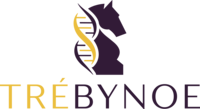The financial world can be complex, especially when planning for your future. With so many different professionals offering their services, it can be challenging to understand who does what and which one is right for you. Two of these professionals are financial planners and investment advisors. Although they may seem similar, they play different roles in managing your finances. This blog post will delve into the differences between a financial planner and an investment advisor in Canada, helping you decide on the best financial planning services for your needs.
What is a Financial Planner?
A financial planner helps individuals and businesses create a comprehensive plan to meet long-term financial goals. They consider various aspects of finance, including budgeting, savings, taxes, investments, retirement planning, estate planning, and insurance. The aim is to provide a holistic approach to managing your finances.
Financial planners in Canada often hold designations such as Certified Financial Planner (CFP) or Personal Financial Planner (PFP). These credentials indicate that the planner has met specific education, experience and ethical requirements.
Role of a Financial Planner
The primary role of a financial planner is to understand your current financial situation, identify your financial goals and develop a comprehensive plan to achieve them. They consider all aspects of your financial life and provide strategies tailored to your specific needs.
A good financial planner will not only help you with investment advice but also guide you on budgeting effectively, saving for retirement or children’s education, minimizing tax liabilities, ensuring adequate insurance coverage and estate planning. They are your go-to person for all things related to personal finance.
What is an Investment Advisor?
An investment advisor (also known as an investment counsellor or portfolio manager) specializes in managing investments. They provide advice on buying or selling stocks, bonds or other securities based on their analysis of market conditions and investment strategies.
In Canada, investment advisors must be registered with the provincial securities commission. They may hold designations such as Chartered Financial Analyst (CFA) or Chartered Investment Manager (CIM), demonstrating their investment management expertise.
Role of an Investment Advisor
The primary role of an investment advisor is to manage your investment portfolio. They make decisions about which securities to buy or sell based on their understanding of the markets and your financial goals and risk tolerance.
Investment advisors provide regular updates on the performance of your investments and make adjustments as needed to keep your portfolio aligned with your financial objectives. While they may offer some general financial advice, they focus mainly on managing your investments.
Choosing the Best Financial Planning Services
Now that you understand the difference between a financial planner and an investment advisor, how do you decide which one is right for you? The answer depends on your specific needs.
If you need help with a broad range of financial issues such as budgeting, retirement planning, tax planning, insurance and estate planning, then a financial planner may be the best choice for you. They can provide a comprehensive plan that covers all aspects of your financial life.
On the other hand, if you have a substantial investment portfolio and only want expert advice on managing it effectively, then an investment advisor may be more suitable. They can help optimize your investments based on market conditions and your financial goals.
Whether you choose a financial planner or an investment advisor depends largely on what kind of assistance you need with your finances. Both professionals play crucial roles in helping individuals manage their money effectively. By understanding their roles better, you can make an informed decision about the best financial planning services for your needs in Canada. Remember that choosing the right professional is not just about their qualifications but also about finding someone who understands your needs and whom you trust to manage your hard-earned money wisely.
What do I think? The numbers show that 52% of active managers underperformed in 2022, climbing to 84%, 93% and 85% over the 3, 5 and 10-year periods. I wish I could confidently say that I am that 7%, but it would be arrogant to think I would have a chance when banks like RBC pay thousands of people a lot of money to achieve this, and they still fail. My investment philosophy revolves around evidence-based strategies, cost and tax efficiency—all things we can control, all things legacy investment advisors miss.




